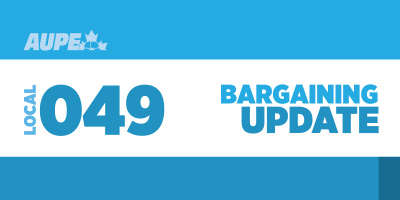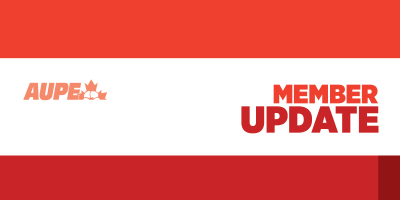When the UCP took power in 2019, we knew that we were in for a fight. We knew that their plan was to defund public services across the province and privatize everything they could get their hands on. We knew, from the beginning, that this government was not going to be like any other that we had seen.
Some of those plans were slowed down, at least temporarily, by the pandemic—when all Albertans saw, up close and personal, how much we all rely on public services. From health-care heroes to front-line workers of all kinds, it was public servants who have gotten us through this pandemic so far. The UCP saw that too, and they’ve had to temper some of their worst instincts.
But now, Alberta is “returning to normal,” and the UCP is itching to get back to their original plans.
Finance Minister Travis Toews released the province’s annual budget yesterday, and it reflects that. High oil prices mean that the government’s finances are doing better than expected—even expecting to run a surplus—but Toews has been adamant that the budget will stick to “responsible spending,” a code for cuts and privatization.
The Cuts
When it comes to jobs, higher resource revenues means that there are fewer job cuts than we have seen in the past years. However, there are still significant cuts in some areas—like the expected loss of 102 jobs in the Ministry of Community and Social Services. An additional 22 jobs are on the chopping block in advanced education, 38 jobs at the different branches of Treasury Board and Finance, 14 jobs at Labour and Immigration, and another five at Culture and Status of Women. Corrections will be subject to an $8 million cut, according to the budget.
Service Alberta’s budget is set to increase by $14 million—an increase going exclusively to digital strategy, the same area that created the 1GX payroll fiasco that is currently plaguing so many Government of Alberta workers.
In health care, as part of what they described as “a historic expansion of health-care capacity,” the province also intends to increase full-time equivalents at Alberta Health Services (AHS) by 850, or around one per cent of the total jobs. This budget also increases AHS’ budget by about$600 million.
While this might seem like a large increase, it’s only 2.4 per cent—which doesn’t even keep up with the rate of population growth and inflation. To keep up with those rising costs, AHS would need to increase its budget by 4.6 per cent—nearly double the increase proposed.
Since the UCP took power, inflation and population growth would require a 14.03 per cent increase in the health-care budget by the end of this year, but total health spending over those years has only increased 5.5 per cent. So, the UCP’s “historic investment” in health care is effectively a cut!
That isn’t the worst of it, though. The UCP clearly has longer-term plans to bring in U.S.-style private health care to Alberta, and they’re showing clues of it in the budget.
Privatizing Surgeries
When the UCP launched the Alberta Surgical Initiative, it claimed that it would help to reduce surgical backlogs. A major part of the ASI, so far, is to have private practitioners, rather than public health-care institutions, perform surgeries. The UCP is now saying that they hope that the proportion of private surgeries will double, from 15 to 30 per cent of all surgeries in the province—which means that privatized surgeries would account for nearly a third of the total.
The privatized surgeries model has been tried before, and it has been an absolute failure. When Saskatchewan implemented a similar plan, it did reduce surgical wait times for a brief period, followed by skyrocketing backlogs that today are longer than ever.
For everyday Albertans, it means that we can expect a divided health-care system, with resources being drained from the public sector into private, for-profit providers—it’s the UCP attempting to import U.S.-style health care into Canada.
Privatizing Continuing Care
Last year, the UCP launched a “survey” full of loaded questions about the future of continuing care. Afterwards, the government released a report which summarizes the results of the surveys as well as recommendations for what the government should do to address Alberta’s rising need for care services.
Like the previous Ernst & Young report on Alberta Health Services, which recommended the privatization of Capital Care & CareWest, this new report contains some troubling recommendations, including subsidizing private care with public dollars.
For example, Recommendation 23 proposes increasing the "choices" available to Albertans seeking care services. This includes the option of using public dollars to pay family members to provide care. The recommendation advocates for even more for-profit and privatized care options, rather than consolidating care under public ownership.
This year’s budget proposes to create at least 1,515 new continuing care beds in the province—and the budget specifies that “many” of them are subject to a Request for Expression of Interest and Qualification process, which points to the likelihood that they will be private beds.
It’s also important to note that the budget increases funds for home care as an alternative to continuing care facilities. Home care is a great option for many seniors, and AUPE is proud to represent home-care workers from AHS and CBI Home Health. But it’s also important to note that the industry is plagued with labour problems—many workers are classified as contractors, so they don’t have access to standard workplace protections. They also generally don’t have their essential travel time between clients paid.
Home care is expected to receive $750 million in this year’s budget, up from the forecasted $669 million from last year—which actually ended up going over-budget, at $731 million.
If we’re going to build a resilient home-care system in Alberta—which we absolutely should be doing—then we need to make sure that home care works for both seniors and workers.
Privatizing Education
Among the UCP’s top priorities has been what they refer to as “school choice,” which is really a euphemism for privatizing K-12 education. UCP Education Minister Adriana LaGrange has made no secret of her disdain for public schools, and preference for private and religious education.
This year, Finance Minister Toews is jumping head-first into charter schools—diverting $72 million to private schools and collegiates over three years, including $47 million in capital costs to fund the expansion of charter schools. It’s the UCP’s favorite playbook—public funding for upfront costs, so that companies can juice their private profits.
This year’s budget also contains a significant cut to Education’s funding for COVID-19 adaptation. Over the past two years, the government spent $384 million on COVID-19/Recovery Plan programs in education—this year, the number is only $13 million. This leaves our schools seriously underprepared and underfunded if COVID-19 decides to come roaring back—as Health Minister Jason Copping has said he expects more waves in the future.
Offloading the Cost of Post-Secondary Education
Post-secondary education has been one of the hardest-hit sectors in the UCP’s budgets over the past three years, with nearly $700 million in cuts prior to this year’s budget. This savage austerity has triggered a major backlash, and post-secondaries across the province are in the middle of an unprecedented wave of labour unrest. This is all part of the UCP’s program to defund the province’s universities and turn them into what has been described as “job skills factories.”
After three years of cuts, this year’s budget projects an increase of post-secondary funding by $211 million. Of that number, over half—$149 million—is projected to come from an increase in tuition and enrollment fees. Universities, according to this year’s budget, are set to become more “self-sustaining” financially—which means offloading the cost of these public services directly onto students.
If we want universities to be a part of Alberta's economic recovery, they need to be accessible to all—and that means giving them proper funding.
Looking Ahead
With this budget, we can see that the UCP’s crusade against public services has never actually been about balancing the budget, no matter how much they talk about responsible public spending. Here, we have an actual balanced budget—despite the UCP’s repeated tax breaks for their wealthy corporate donors—and they remain committed to privatization and cutbacks.
If there’s one major theme in this budget, and the coming legislative session, it’s privatization. In health care, continuing care, K-12 education, and beyond, the UCP is getting around to the work it has always wanted to do—raiding Albertans’ public assets and selling them off to their corporate friends.
As AUPE members, we know that this doesn’t work. We see the dangers of private health care and privatized education. We know that all Albertans deserve access to quality public services, no matter their income. And we’re ready to do what it takes to defend those services, and our jobs that deliver them.
We have spent the past two years being called heroes for the work we do. It’s time that this government gave us more than lip-service, and valued our labour. But for that to happen, we’re going to have to continue our organizing efforts. Budget 2022 makes it clear that the fight to protect our jobs and the services Albertans rely on continues.

